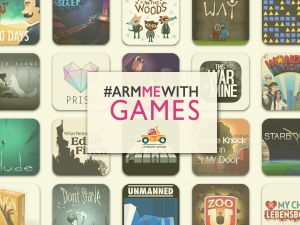
The stories that have emerged from the STEM School Highlands Ranch and the University of North Carolina at Charlotte shootings over the past few weeks have been heartbreaking. There is the story of sixth grader Nate Holley, who put his hand on a metal baseball bat, “just in case … ‘cuz I was gonna go down fighting if I was gonna go down.” There is the tragic heroism of Riley Howell at UNC-Charlotte, who was shot three times while tackling the gunman, risking his own life to save his classmates. And there is the chilling Twitter message that warned that shots had been fired on campus: “Run, Hide, Fight. Secure yourself immediately.”
These tragedies are among the 120 mass shootings in America so far this year—and two of eight that have taken place in institutions of learning since January 2019. These acts of violence have taken place in classrooms and school hallways–places that we used to think of as safe spaces for our children. As I wrote in my Letter to the Editor that was published in The New York Times last month, “While we wait for gun reform legislation, we must do everything we can to arm our children and families—and educators—with tools to process their anxieties, fears and traumas.”
Last year, the #ArmMeWith hashtag went viral on social media as educators responded to proposals that teachers be armed with guns to prevent school shootings; instead, teachers shared requests for what they felt they needed to prevent further tragedy—from more books to bullying prevention programs. The #ArmMeWith movement inspired me to wonder: What if we were to arm parents and teachers with a curated list of stories, games, and resources that can give strength, empathy, and socio-emotional learning skills to young people growing up in the shadow of school shootings and lockdown drills?
This question led my studio Literary Safari to collaborate with children’s authors, leading game designers, and educators to create the following resources for parents, educators, and young people:
- A graphic novella, William H.G. Butler Middle School, about a fictional school in the aftermath of a school shooting (written in the style of Instagram posts)
- A discussion guide for parents, educators, and young people written by a middle school teacher, Toby Murphy
- #ArmMeWithBooks list of recommendations from 50 award-winning authors for young people in the age of school shootings
- #ArmMeWithGames list of 20 empathy and social-emotional learning game recommendations from leading game designers, researchers, and educators, including Joel Levin, the founder of MineCraftEdu and Dr. Karen Schrier, author of Knowledge Games and director of the Games and Emerging Media program at Marist College
Our Instagram-style William H.G. Butler Middle School graphic novella explores the impact of mass shootings on educators, families, and young people. As narrative designers, we know that stories are a powerful doorway through which to explore complex subjects. The discussion guide that accompanies our dystopian story is one that we hope parents and educators will use to have meaningful dialogues about what is happening in schools today, and to investigate ways that we can mobilize for change.
We also believe that stories and games can help young people navigate these complex times. While the media tend to be dominated with narratives that amp up a moral panic around video games, recent research studies have failed to find a link between the time spent playing violent video games and aggressive behavior. In fact, a study from the University of Wisconsin-Madison found that video games can boost empathy by changing neural connections in the brain. These findings are more important than ever by challenging the games are bad narrative.
Our #ArmMeWithGames list includes adventure, puzzle, battle, narrative, and live action role play games that have been designed to build empathy and social-emotional learning. Our #ArmMeWithBooks list features picture books, chapter books, fiction and non-fiction that inspires hope, resilience, and social change.
The resources we have created are available as a free downloadable publication here. I invite you to download it, and to share it with one educator, one teacher, and one parent in your network.
 Sandhya Nankani is the founder of Literary Safari, a NYC studio that creates inclusive media for children and families everywhere. Its clients have included Nickelodeon, Sesame Learning, UNESCO, Benchmark Education, and PBS. Its work is rooted in an understanding of learning science, educational standards, narrative design, and good, old-fashioned fun! This fall, Literary Safari will launch Story Seeds™, a podcast, curriculum, and subscription box that brings together diverse and celebrated children’s authors and kid creatives.
Sandhya Nankani is the founder of Literary Safari, a NYC studio that creates inclusive media for children and families everywhere. Its clients have included Nickelodeon, Sesame Learning, UNESCO, Benchmark Education, and PBS. Its work is rooted in an understanding of learning science, educational standards, narrative design, and good, old-fashioned fun! This fall, Literary Safari will launch Story Seeds™, a podcast, curriculum, and subscription box that brings together diverse and celebrated children’s authors and kid creatives.

